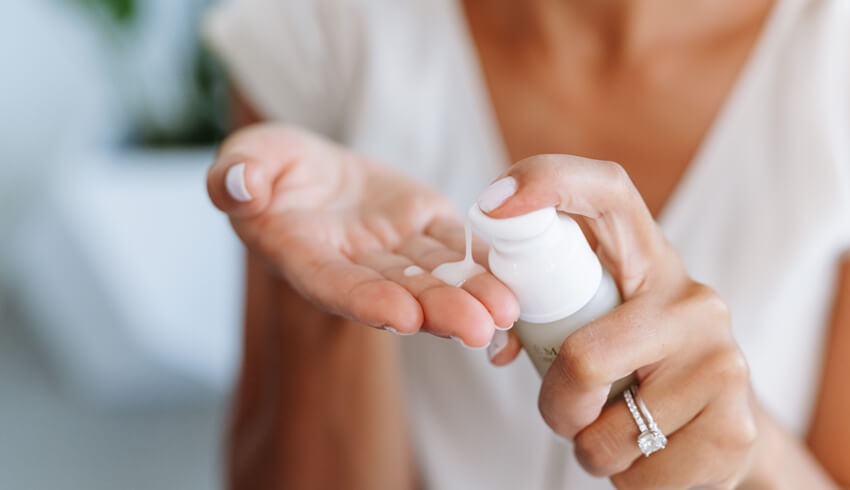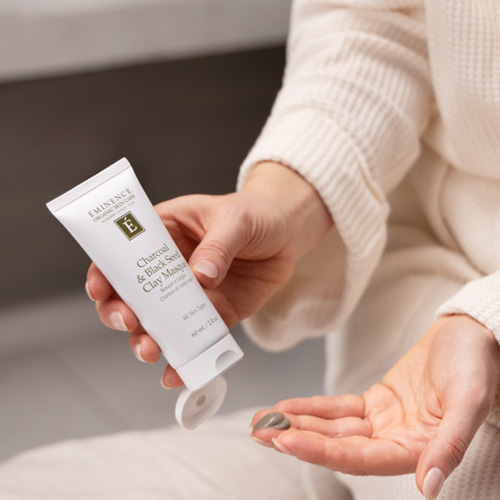The Dos And Don’ts of Applying Skin Care
The Dos And Don’ts of Applying Skin Care Are you unwittingly sabotaging your skin's health with your skin care routine? It's not just about choosing the right products; how you apply them is just as important. Many common practices, seemingly harmless, can actually hinder your skin’s wellbeing. From unsanitary habits to missteps in application, small errors can lead to big skin issues. To help you navigate this, we’ve put together a list of skin care dos and don'ts. These skin care tips are more than just suggestions; they're your guide to transforming your routine into an effective, skin-loving practice. Let’s get into these game-changers for healthier, happier skin. Do: Use a Spoon or Spatula Just like washing your hands before making a meal, the way you handle and apply your skin care products is important for hygiene. Unfortunately, when it comes to using jar products, each finger-dip is a potential welcome party for bacteria and fungi. Your favorite creams create a welcoming environment for microorganisms and bacteria that you can end up transferring from your hands to your jar and then back to your skin. Instead, consider using a small spoon or spatula instead of your fingers to extract the product. These tools can easily be sanitized and they also allow you to be more precise. You’ll see your products lasting longer because you’re not overusing them. Don't: Touch Serum Droppers to Your Face Serum droppers are designed to dispense the product without direct skin contact. So, when using serum droppers, it's important to avoid touching them directly to your face. This practice keeps the serum pure by preventing contaminants on the skin from getting inside the bottle. Natural microorganisms reside on our skin and sebum is produced by our bodies, so when the dropper touches the skin, these elements can be transferred to the tip of the dropper. Once the dropper is placed back into the bottle, there's a risk of affecting the remaining skin care product, which might not be immediately noticeable but can compromise the serum's efficacy over time. For those skilled enough to use the dropper without it ever touching their skin, that’s great, but for most, the hand method is a safer bet to keep your serums performing at their best. Do: Follow Product Instructions Each skin care product comes with specific instructions for use. Following these instructions ensures you get the full benefit of the product, whether it's applying in a certain order or using a specific amount. For instance, some products work best when applied to damp skin, such as certain hyaluronic acid serums, which are designed to lock in moisture. Others, like targeted acne treatments, might be recommended for nighttime use due to their sensitivity to sunlight or their intensive restorative properties that work best as you sleep. Don't: Dilute SPF Diluting sunscreen significantly reduces its effectiveness as it disrupts the formulation and the way it protects your skin from the sun's rays. Sunscreen is specifically formulated to create a certain level of protection – the Sun Protection Factor (SPF) – and diluting it changes this balance. And when you mix sunscreen with something else, you're not just combining two products; you're potentially altering the structure and distribution of the sunscreen's UV filters. This can lead to uneven protection and lower the efficacy of SPF, leaving your skin more vulnerable to sunburns and long-term sun damage. Take mineral sunscreens, for example, which are designed to create a physical barrier on the skin, reflecting and scattering UV rays. Diluting this formula reduces the concentration of minerals on the skin and diminishes the protective barrier they provide. Additionally, if you’re mixing an SPF with another product, you may not be applying enough. You want to ensure you’re applying SPF liberally for the best possible sun protection. Do: Clean Your Hands Before Application A simple tip, but a powerful one nonetheless: Always wash your hands thoroughly before applying any skin care product. This reduces the risk of transferring dirt and bacteria from your hands to your face. Don't: Over-Exfoliate or Overuse Products While shedding dead skin cells through exfoliation unveils a radiant complexion, an overzealous approach can strip essential oils and damage the skin's natural barrier. Too much exfoliation can harm your skin's protective barrier, leading to increased sensitivity and irritation. Likewise, overusing products can overwhelm your skin, possibly causing clogged pores or breakouts. It’s about tuning into your skin's needs and finding that sweet spot where you're using enough to be effective, but not so much that it causes problems. A good rule of thumb to begin with is to exfoliate one to three times a week, which should generally be sufficient. Do: Use Gentle Cleansing Techniques For cleansing, it's important to remove makeup before you get starte


The Dos And Don’ts of Applying Skin Care
Are you unwittingly sabotaging your skin's health with your skin care routine? It's not just about choosing the right products; how you apply them is just as important. Many common practices, seemingly harmless, can actually hinder your skin’s wellbeing. From unsanitary habits to missteps in application, small errors can lead to big skin issues. To help you navigate this, we’ve put together a list of skin care dos and don'ts. These skin care tips are more than just suggestions; they're your guide to transforming your routine into an effective, skin-loving practice. Let’s get into these game-changers for healthier, happier skin.

Do: Use a Spoon or Spatula
Just like washing your hands before making a meal, the way you handle and apply your skin care products is important for hygiene. Unfortunately, when it comes to using jar products, each finger-dip is a potential welcome party for bacteria and fungi. Your favorite creams create a welcoming environment for microorganisms and bacteria that you can end up transferring from your hands to your jar and then back to your skin. Instead, consider using a small spoon or spatula instead of your fingers to extract the product. These tools can easily be sanitized and they also allow you to be more precise. You’ll see your products lasting longer because you’re not overusing them.
Don't: Touch Serum Droppers to Your Face
Serum droppers are designed to dispense the product without direct skin contact. So, when using serum droppers, it's important to avoid touching them directly to your face. This practice keeps the serum pure by preventing contaminants on the skin from getting inside the bottle. Natural microorganisms reside on our skin and sebum is produced by our bodies, so when the dropper touches the skin, these elements can be transferred to the tip of the dropper. Once the dropper is placed back into the bottle, there's a risk of affecting the remaining skin care product, which might not be immediately noticeable but can compromise the serum's efficacy over time. For those skilled enough to use the dropper without it ever touching their skin, that’s great, but for most, the hand method is a safer bet to keep your serums performing at their best.
Do: Follow Product Instructions
Each skin care product comes with specific instructions for use. Following these instructions ensures you get the full benefit of the product, whether it's applying in a certain order or using a specific amount. For instance, some products work best when applied to damp skin, such as certain hyaluronic acid serums, which are designed to lock in moisture. Others, like targeted acne treatments, might be recommended for nighttime use due to their sensitivity to sunlight or their intensive restorative properties that work best as you sleep.
Don't: Dilute SPF
Diluting sunscreen significantly reduces its effectiveness as it disrupts the formulation and the way it protects your skin from the sun's rays. Sunscreen is specifically formulated to create a certain level of protection – the Sun Protection Factor (SPF) – and diluting it changes this balance. And when you mix sunscreen with something else, you're not just combining two products; you're potentially altering the structure and distribution of the sunscreen's UV filters. This can lead to uneven protection and lower the efficacy of SPF, leaving your skin more vulnerable to sunburns and long-term sun damage. Take mineral sunscreens, for example, which are designed to create a physical barrier on the skin, reflecting and scattering UV rays. Diluting this formula reduces the concentration of minerals on the skin and diminishes the protective barrier they provide.
Additionally, if you’re mixing an SPF with another product, you may not be applying enough. You want to ensure you’re applying SPF liberally for the best possible sun protection.
Do: Clean Your Hands Before Application
A simple tip, but a powerful one nonetheless: Always wash your hands thoroughly before applying any skin care product. This reduces the risk of transferring dirt and bacteria from your hands to your face.
Don't: Over-Exfoliate or Overuse Products
While shedding dead skin cells through exfoliation unveils a radiant complexion, an overzealous approach can strip essential oils and damage the skin's natural barrier. Too much exfoliation can harm your skin's protective barrier, leading to increased sensitivity and irritation. Likewise, overusing products can overwhelm your skin, possibly causing clogged pores or breakouts. It’s about tuning into your skin's needs and finding that sweet spot where you're using enough to be effective, but not so much that it causes problems. A good rule of thumb to begin with is to exfoliate one to three times a week, which should generally be sufficient.
Do: Use Gentle Cleansing Techniques
For cleansing, it's important to remove makeup before you get started. You can use a micellar product, an oil-based cleanser or whatever other method works for you. Use lukewarm water, as it's gentle on the skin and helps open pores slightly, allowing deeper penetration of active ingredients. Apply your cleanser using gentle, circular motions with your fingertips and avoid using washcloths that can be too abrasive.
Don't: Use Expired Products
Using expired skin care products can lead to several issues. Over time, the active ingredients in these products can break down, meaning they won't be as effective as they were meant to be. It's particularly crucial with sunscreens, as their effectiveness in protecting against UV rays diminishes over time, potentially increasing the risk of sunburn and long-term skin damage.
Expired products can also become breeding grounds for bacteria, leading to skin irritation or even infections. This is especially true for products that are frequently exposed to air and touch, like serums and creams in jars.
Also check for any signs that a skin care product has expired, including changes in color, texture or smell. The rule of thumb is to keep an eye on your products and refresh them as needed, ensuring that what you put on your skin is both safe and effective. It’s a simple step, but it makes a big difference in keeping your skin care game strong.
By following these simple yet effective dos and don'ts, you can significantly enhance your skin care routine's efficacy to ensure a healthy look to your complexion. Find the right products for your skin care routine at an Eminence Organics Spa Partner — Use our Spa Locator to find a spa near you.












